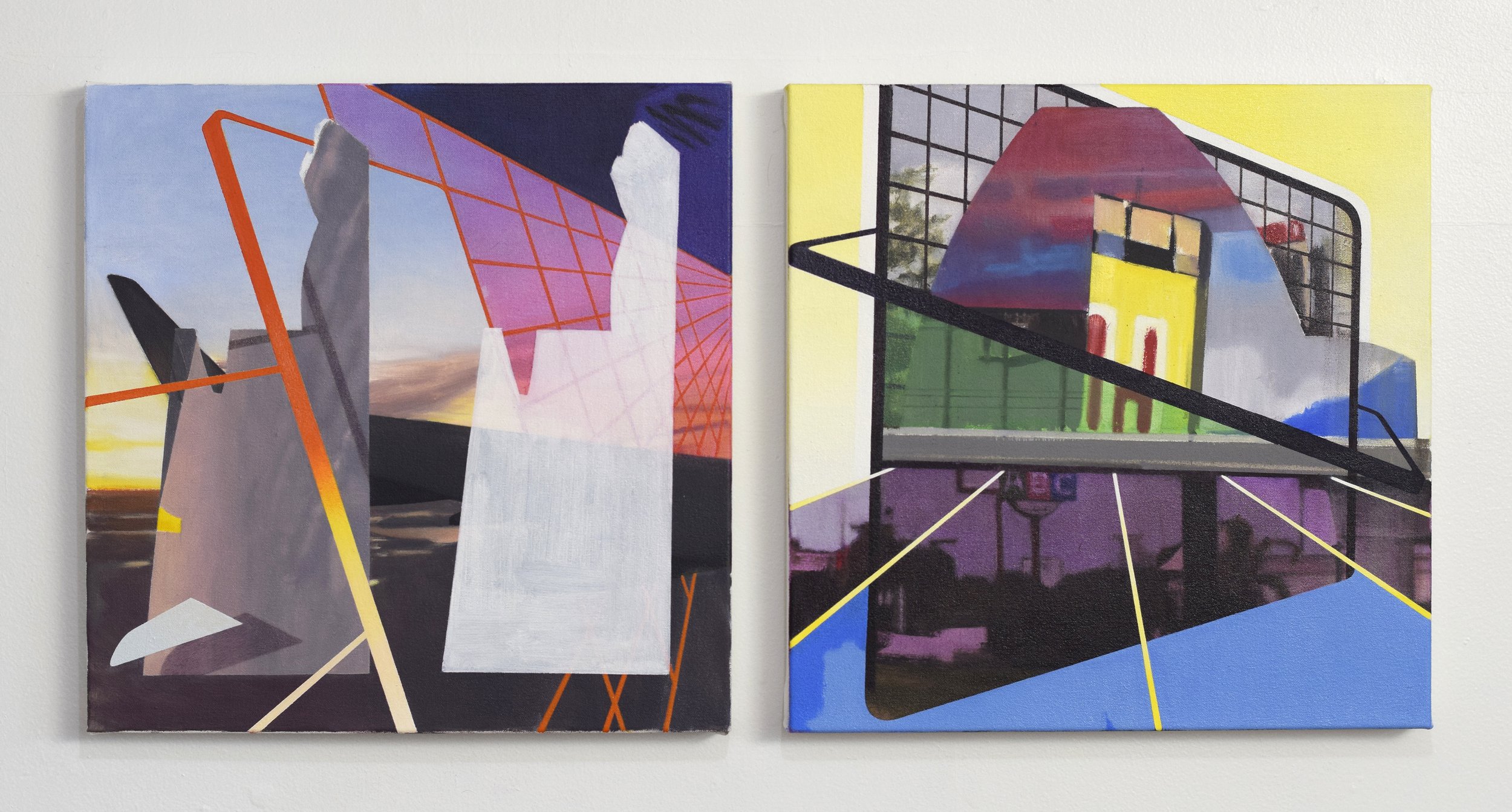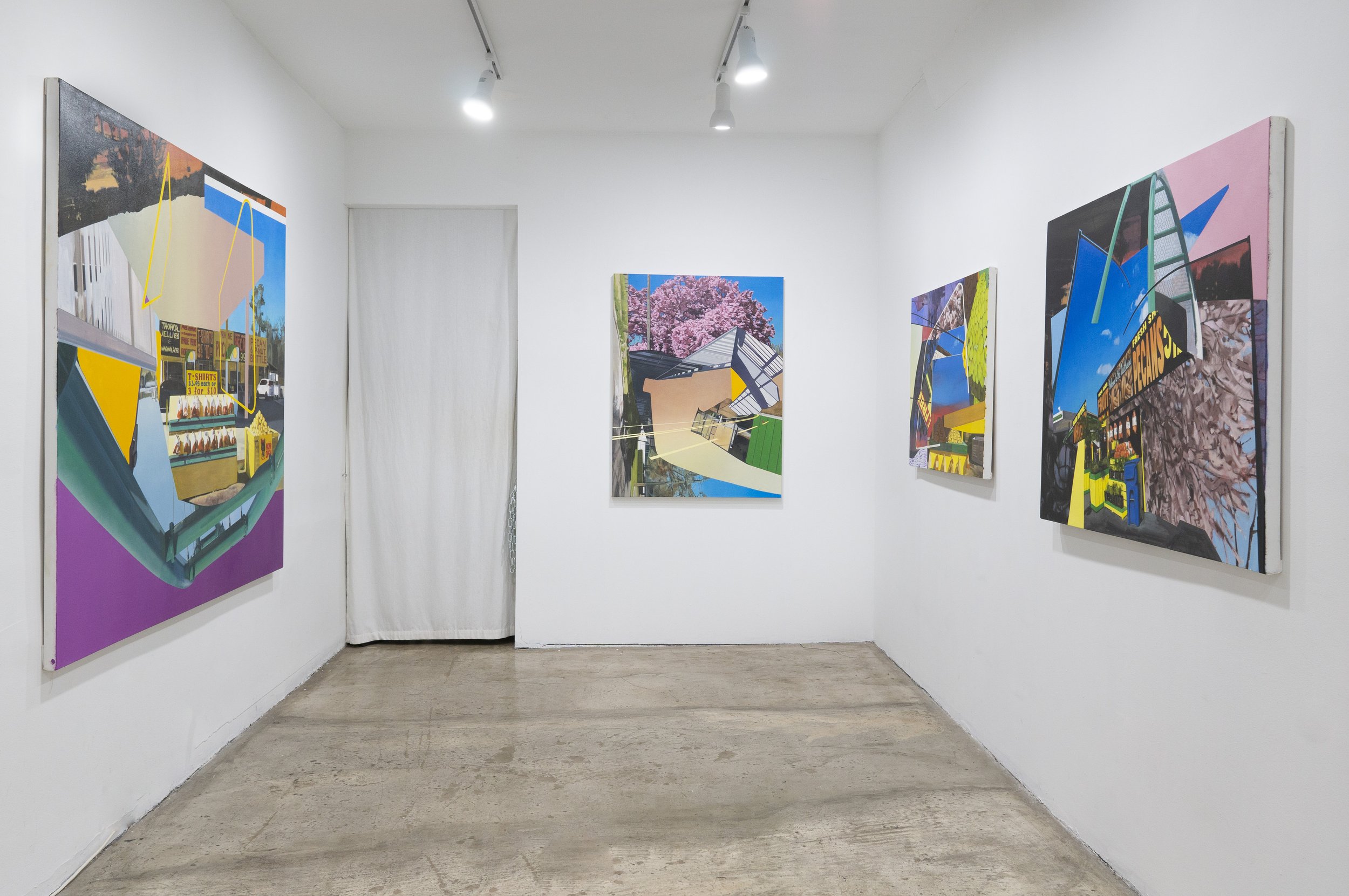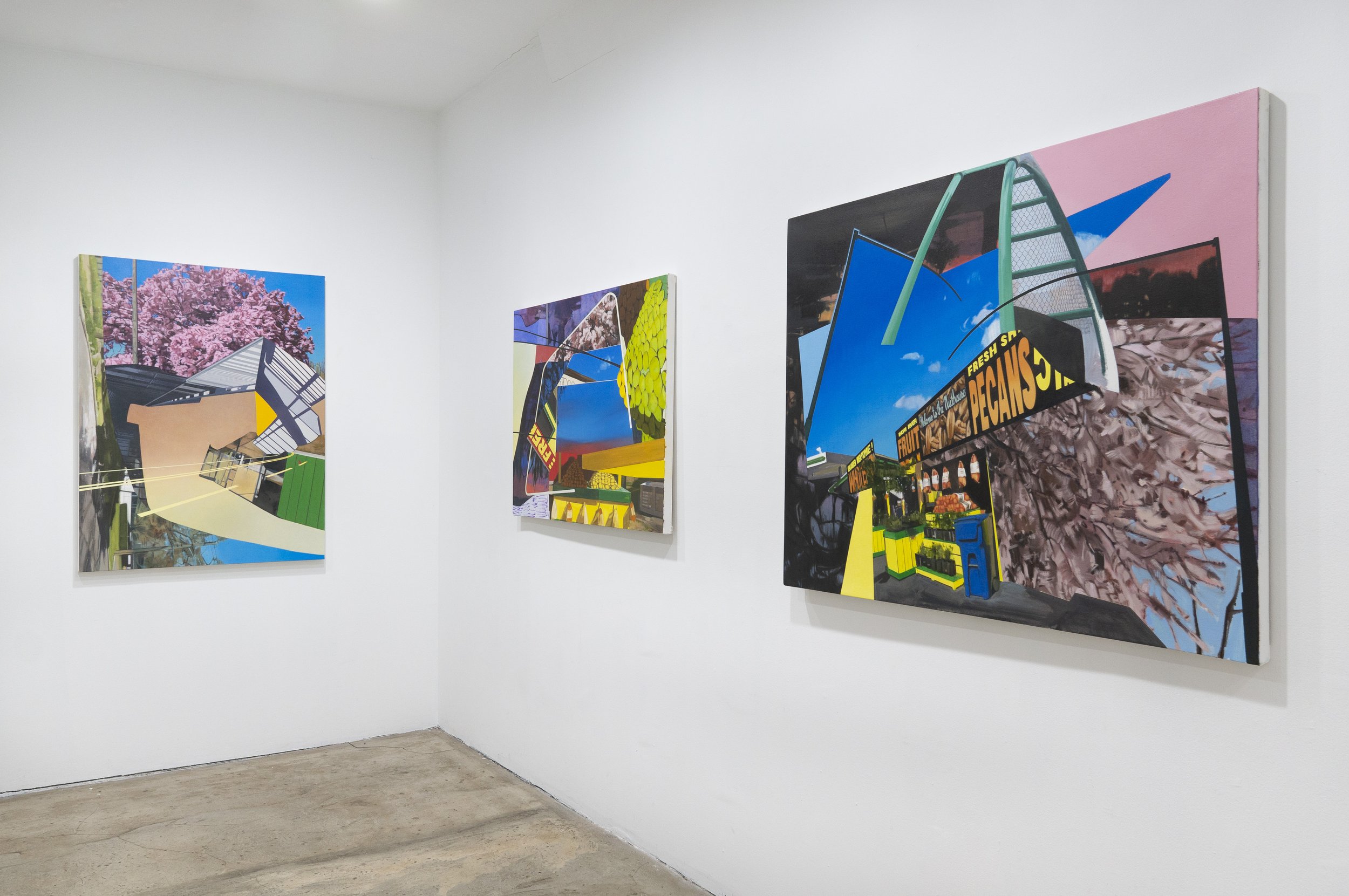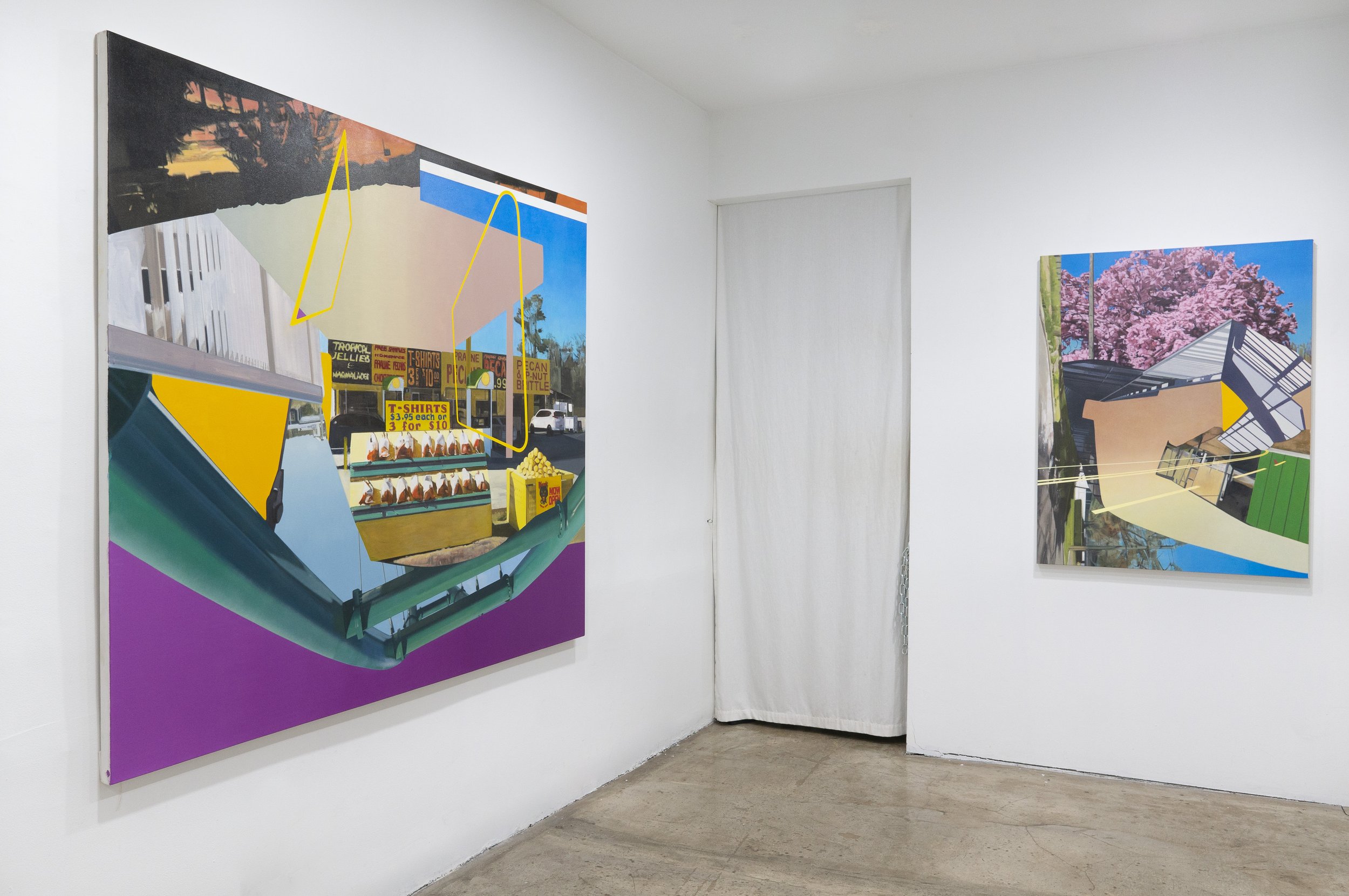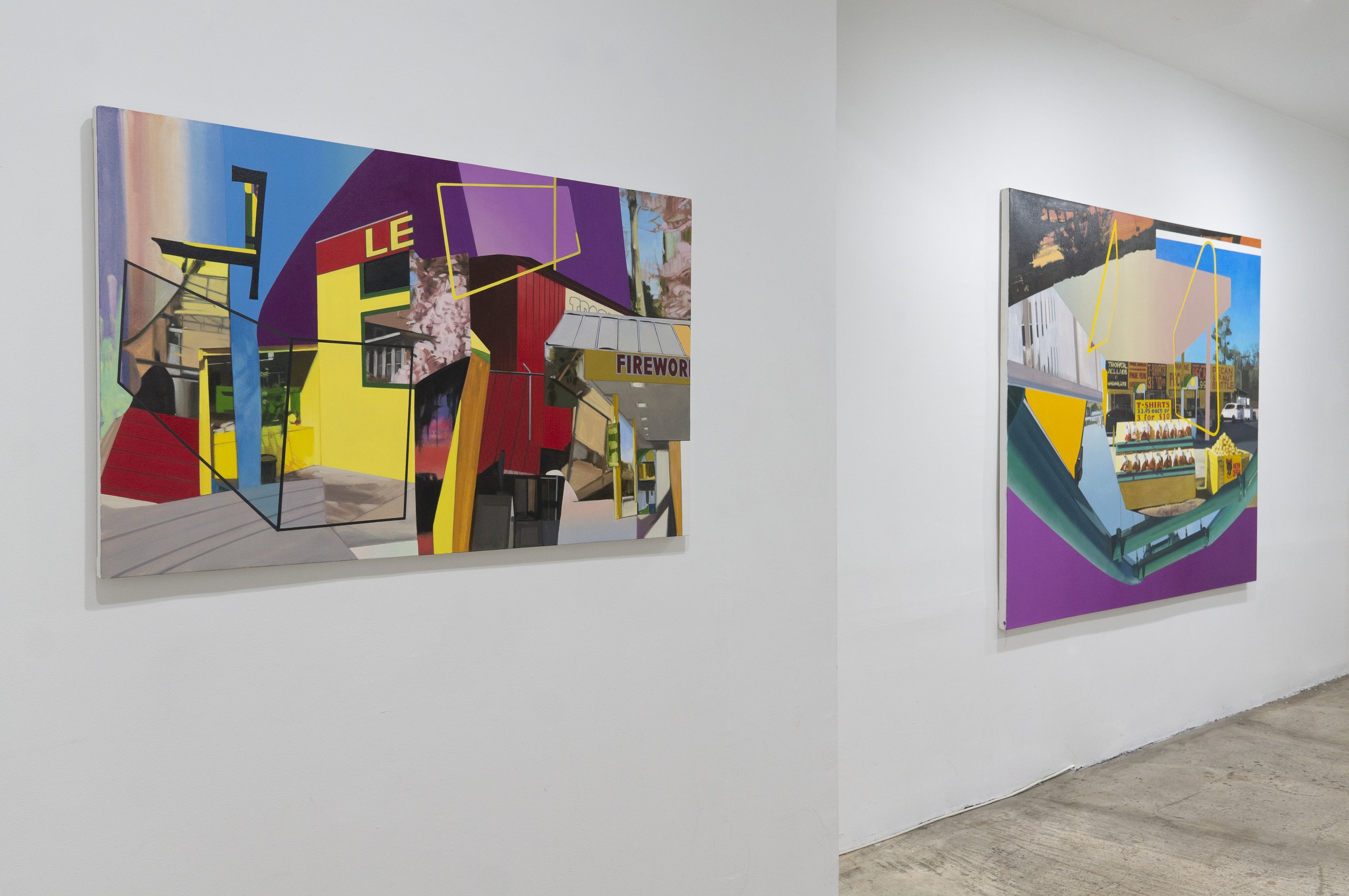Throughlines is a solo exhibition featuring over 30 works of mine from the past decade. Show’s up through April 12th in Richwood, West Virginia!
Blog
Windows and Barricades at Penn State Abington
I'm delighted to announce Windows and Barricades, my two-person show with the incredible Matthew Colaizzo. The exhibition runs through the month of February at Penn State Abington, with a public closing reception on March 1st from 1 to 2:30 PM.
Photo by Jaime Alvarez
About the Show
Windows and Barricades brings together paintings and drawings by Philadelphia-based artists Matthew Colaizzo and Julia Clift for the first time. The two met in 2020, when Clift invited Colaizzo to participate in her curatorial debut Seeing the Anthropocene, a group exhibition that took place across multiple Philadelphia venues in the fall of 2023. Windows and Barricades further develops the conversation between Colaizzo and Clift as two studio artists with shared concerns and similar formal sensibilities. Both artists explore tensions between ecology and the built environment, interrogating human desires for control in a world of entropy and impermanence. The artists also share an abiding interest in navigational and perceptual barriers. Walls, barricades, windows and screens abound in their paintings and drawings, compelling viewers to peer through filters and meager gaps, and ultimately prompting reflection on the forces that shape how we see and move about in the world. While the works in this exhibition all allude to critical issues like humankind’s hubris, Colaizzo and Clift eschew didacticism and maintain a tone of playful invention.
ArtShow Interview with Craig Stover
recorded April 5, released June 14
COCE 2023
Last week, I travelled to Harrisonburg, VA to attend the International Environmental Communication Association’s biennial Conference on Communication and the Environment (COCE 2023). I was humbled to share some new paintings and thoughts, and I was thrilled to present the panel discussion “Artists Dismantling the Anthropocentric Mindset,” featuring artists Austen Camille, Byron Wolfe, and Lydia Cheshewalla. (Camille, Wolfe, and Cheshewalla are all part of a larger, multi-venue exhibition that I’m curating in Philadelphia this fall titled Seeing the Anthropocene—stay tuned for more details!)
My own paintings and words were included in the group exhibition Shifting Climate: Artists Respond to the Earth in Crisis, organized by Yvonne Love. The show was physically installed at James Madison University (the site of the conference) and featured works by Rebecca Rutstein, Deirdre Murphy, Yvonne and David Love, and myself.
Throughout my time in Harrisonburg, I witnessed incredible conversations about climate change between artists, scientists, environmental activists, and communications experts, deepening my conviction in the power and utility of artists' insights at this extraordinary moment.
Below is a reproduction of my contribution to the show, including writing that I presented as wall text.
New Configuration I, 2023, oil on canvas, 50” x 40”
My paintings reflect on current American culture while imagining new, reconfigured worlds. The compositions are loosely based on small collages that I create from photos of the different places where I've lived.
New Configuration I and II contain a mixture of hope and foreboding. The paintings emphasize reinvention and project a sense of possibility, but they also depict human construction bluntly dominating the landscape, fracturing nature and trapping birds within isolated shards of sky. Like all of my paintings, New Configuration I and II reflect my grappling with conflicting emotions; they struggle to reconcile my hope for radical change with cynicism and feelings of attachment to familiar ways of being.
New Configuration II, 2023, oil on canvas, 50” x 40”
All of my paintings are disorienting to some degree. In earlier works, this disorientation served to reflect my own psychological experience living in this country. In recent pieces though, such as New Configuration I and II, I've been thinking of disorientation as generative. Losing one’s bearings may enable a person to re-orient herself in a fundamentally new way.
Reconstructing the Sky (left) and New Sun (right), 2023, oil on canvas, 16” x 16” each
While making New Sun and Reconstructing the Sky, I was thinking about Elizabeth Kolbert's Under a White Sky. In the book, Kolbert envisions a more sustainable future not as a romantic return to pre-industrial ways of being, but rather as a new integration of human technologies and natural systems. Kolbert suggests that, practically, we may need to intervene further into ecosystems and gene pools to mitigate the problems we've created.
BOGO, 2022, oil on canvas, 31” x 48”
BOGO interprets America as a fractured, unstable place forged by consumer culture and a modern, anthropocentric worldview. At the time that I made the painting, I was hopeful that the pandemic might create an opportunity to reshape the country in a more sustainable and equitable way.
All of my paintings in this exhibition meditate on change. COVID-19 has transformed our world over the past three years, and climate change promises to upend everything further, either by unleashing cascading catastrophes or by forcing humans to take radical preventative action. Change is inevitable; directing it is our only hope.
Cradle at Massey Klein Gallery
Cradle, my solo exhibition at Massey Klein Gallery in New York, is now on view through April 16th. Check out the installation shots and press release below…and you can see the collages that started these paintings in the previous post!
Press Release
Julia Clift: Cradle
March 11 - April 18, 2022
Massey Klein Gallery is pleased to present Cradle, a solo exhibition of new paintings by Julia Clift. The exhibition will be on view from March 11 through April 18. An opening reception will be held on Saturday, March 12th from 4-7pm. This is the artist’s first solo exhibition with the gallery. For press inquiries or questions regarding works available, please email info@masseyklein.com.
Julia Clift's newest paintings included in Cradle interpret America as simultaneously a beloved homeland and a place falling apart at the seams. Her work stems from her research and lived experience in different regions of the United States, including Central Florida, the Midwest, North Carolina, and major East Coast cities. The artist uses bright, saturated colors found in neighborhood plants--from the vivid yellows of tulips and daffodils, to the electric pinks of a kanzan cherry blossom tree--to examine notions of naturalness and artificiality, and specifically, the relationship between ecology and consumer culture. Ultimately optimistic, these artworks emphasize reconstruction and imagine alternative logics, providing a sense of possibility and discovery through painterly invention.
“These paintings were all made while I was either pregnant or within the first year of my son’s life, and in the wake of my dad’s sudden, unexpected death. The paintings are steeped in thoughts about family, childhood, and how my son’s worldview is being shaped by growing up in this country.”
Clift paints from small collages composed of her own photographs, tourism advertisements, and color swatches. The imagery features personally significant places, such as Orlando, where she grew up, and suburban Philadelphia, where she currently lives. The artist combines realism, abstraction, and invention in her paintings as a method of exploring the fluid relationship between physical place and one’s mental landscape, allowing tensions and differences to exist while inevitably harmonizing within each painting. In this way, her compositions are intentionally fractured and disorienting, yet hopeful.
**
Julia Clift has exhibited extensively throughout the United States, including solo exhibitions at Tyler School of Art and Architecture at Temple University (2021), University City Arts League in Philadelphia (2017), Fleisher Art Memorial (2016) and Artspace in Raleigh, NC (2012).
Clift graduated with a BFA in Painting and English from Washington University in St. Louis in 2009 and with an MFA in Painting from Tyler School of Art and Architecture at Temple University in 2020. The artist was selected for the Fred and Naomi Hazell Faculty Fellowship (Fleisher Art Memorial, 2016), the Alfred and Trafford Klots International Program for Artists (Maryland Institute College of Art, 2013) and the Regional Emerging Artist Residency at Artspace (Raleigh, NC, 2011). She was the recipient of the Visual Arts Grant from the Barbara Deming Memorial Fund (2015), and the Hazel H. Huntsinger Memorial Prize in Painting (2009) and the Sorger Award (2006), both from Washington University in St. Louis. Her artwork is in the permanent collection of the Wythe Hotel in Brooklyn, NY.
Massey Klein Gallery is located at 124 Forsyth St. New York, NY 10002. Gallery hours are Thursday - Sunday 12pm-5pm. To schedule a private viewing, email info@masseyklein.com.










